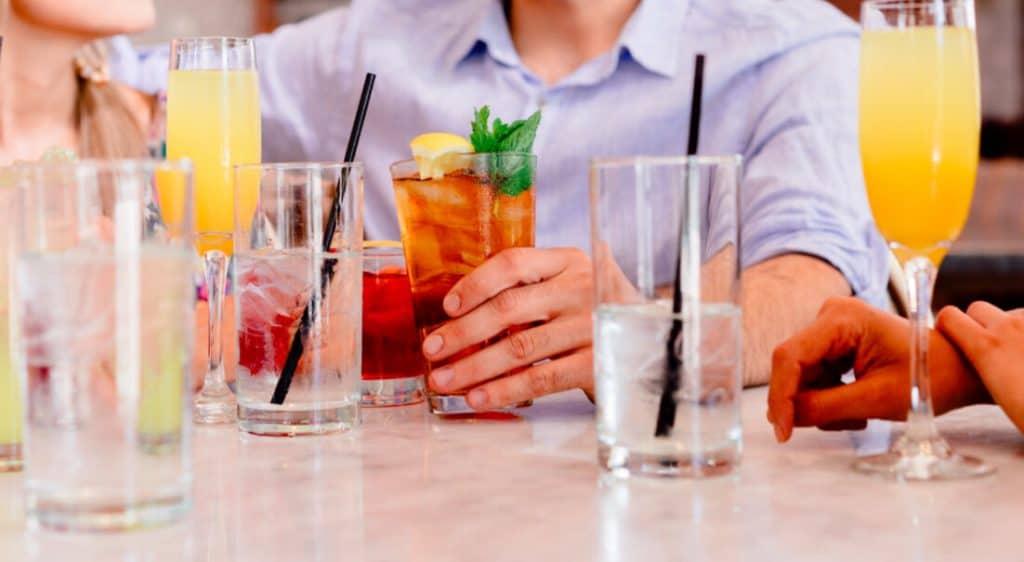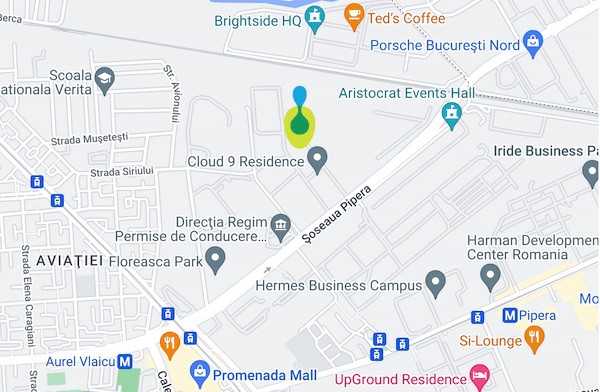În consens cu industriile producătoare de persoane continuu la dietă, analiza făcută de Shankar și colab. în 2013 susține că nu avem studii suficiente nici să încurajăm și nici descurajăm consumul de îndulcitori artificiali pentru slăbit (1).
Unii cercetători susțin că aportul de îndulcitori artificiali este asociat cu o scădere modestă în greutate (2).
Alți cercetători susțin că aportul de îndulcitori artificiali este asociat cu o creștere în greutate (3,4, 5, 6, 7).
Totu’ roz (8).
Doar că (virgulă) consumul zilnic sau excesiv de îndulcitori artificiali poate genera:
- disbioză și toleranță scăzută la glucoză (9,10, 11, 12, 13, 14)
- diabet (15, 16, 17, 18, 19, 20, 21)
- boli cardiovasculare (22, 23, 24, 25, 26)
De asemenea, începând din 2012, îndulcitorii artificiali sunt catalogați ca fiind contaminanți pentru mediu din cauza persistenței și nocivității lor în ecosistemele acvatice (27, 28, 29).
Deci, don’t worry = no sugar?
Studii citate
(1) Shankar, Padmini, Suman Ahuja, and Krishnan Sriram. “Non-nutritive sweeteners: review and update.” Nutrition 29.11 (2013): 1293-1299).
(2) Miller, Paige E., and Vanessa Perez. “Low-calorie sweeteners and body weight and composition: a meta-analysis of randomized controlled trials and prospective cohort studies.” The American journal of clinical nutrition 100.3 (2014): 765-777.
(3) Fowler, Sharon PG, Ken Williams, and Helen P. Hazuda. “Diet soda intake is associated with long‐term increases in waist circumference in a biethnic cohort of older adults: The San Antonio longitudinal study of aging.” Journal of the American Geriatrics Society 63.4 (2015): 708-715.
(4)Pliego-Rivero, F. Bernardo, et al. “The Non-Caloric Sweeteners Aspartame, Sucralose and Stevia sp. Induce Specific but Differential Responses to Compartmentalized Adipose Tissue Accumulation.” The FASEB Journal 31.1 Supplement (2017): 639-46.
(5) Polyák, Éva, et al. “Effects of artificial sweeteners on body weight, food and drink intake.” Acta Physiologica Hungarica 97.4 (2010): 401-407.
(6) Meni, Allison C. Sylvetsky, Susan E. Swithers, and Kristina I. Rother. “Positive association between artificially sweetened beverage consumption and incidence of diabetes.” Diabetologia 58.10 (2015): 2455-2456.
(7) Yang Qing. Gain weight by “going diet?” Artificial sweeteners and the neurobiology of sugar cravings: Neuroscience 2010. The Yale journal of biology and medicine, 2010, 83.2: 101.
(8) Mandrioli, Daniele, Cristin E. Kearns, and Lisa A. Bero. “Relationship between research outcomes and risk of bias, study sponsorship, and author financial conflicts of interest in reviews of the effects of artificially sweetened beverages on weight outcomes: a systematic review of reviews.” PloS one 11.9 (2016): e0162198.
(9) Bokulich, Nicholas A., and Martin J. Blaser. “A bitter aftertaste: unintended effects of artificial sweeteners on the gut microbiome.” Cell metabolism 20.5 (2014): 701-703.
(10) Suez, J., Korem, T., Zeevi, D., Zilberman-Schapira, G., Thaiss, C. A., Maza, O., … & Kuperman, Y. (2014). Artificial sweeteners induce glucose intolerance by altering the gut microbiota. Nature, 514(7521), 181-186.
(11) Abbott, Alison. “Sugar substitutes linked to obesity: artificial sweetener seems to change gut microbiome.” Nature 513.7518 (2014): 290-291.
(12) Nettleton, Jodi E., Raylene A. Reimer, and Jane Shearer. “Reshaping the gut microbiota: Impact of low calorie sweeteners and the link to insulin resistance?.” Physiology & behavior 164 (2016): 488-493.
(13) Pepino, M. Yanina. “Metabolic effects of non-nutritive sweeteners.” Physiology & behavior 152 (2015): 450-455.
(14) Swithers, Susan E. “Artificial sweeteners produce the counterintuitive effect of inducing metabolic derangements.” Trends in Endocrinology & Metabolism 24.9 (2013): 431-441.
(15) Nettleton, Jennifer A., et al. “Diet soda intake and risk of incident metabolic syndrome and type 2 diabetes in the Multi-Ethnic Study of Atherosclerosis (MESA).” Diabetes care 32.4 (2009): 688-694.
(16) Fagherazzi, Guy, et al. “Consumption of artificially and sugar-sweetened beverages and incident type 2 diabetes in the Etude Epidémiologique auprès des femmes de la Mutuelle Générale de l’Education Nationale–European Prospective Investigation into Cancer and Nutrition cohort.” The American journal of clinical nutrition 97.3 (2013): 517-523.
(17) Greenwood, D. C., et al. “Association between sugar-sweetened and artificially sweetened soft drinks and type 2 diabetes: systematic review and dose–response meta-analysis of prospective studies.” British Journal of Nutrition 112.05 (2014): 725-734.
(18) Yarmolinsky, James, et al. “Artificially Sweetened Beverage Consumption Is Positively Associated with Newly Diagnosed Diabetes in Normal-Weight but Not in Overweight or Obese Brazilian Adults.” The Journal of nutrition 146.2 (2016): 290-297.
(19) Fagherazzi, Guy, et al. “Chronic Consumption of Artificial Sweetener in Packets or Tablets and Type 2 Diabetes Risk: Evidence from the E3N-European Prospective Investigation into Cancer and Nutrition Study.” Annals of Nutrition and Metabolism 70.1 (2017): 51-58.
(20) Meni, Allison C. Sylvetsky, Susan E. Swithers, and Kristina I. Rother. “Positive association between artificially sweetened beverage consumption and incidence of diabetes.” Diabetologia 58.10 (2015): 2455-2456.
(21) Hoffmann, Brian R., and Andrew S. Greene. “Mechanisms of Vascular Endothelial Dysfunction: The Problem with Sugar and Artificial Sweeteners.” The FASEB Journal 31.1 Supplement (2017): 853-9.
(22) Cheungpasitporn, Wisit, et al. “Sugar and artificially sweetened soda consumption linked to hypertension: a systematic review and meta-analysis.” Clinical and Experimental Hypertension 37.7 (2015): 587-593.
(23) Narain, Aditya, C. S. Kwok, and M. A. Mamas. “Soft drinks and sweetened beverages and the risk of cardiovascular disease and mortality: a systematic review and meta‐analysis.” International journal of clinical practice 70.10 (2016): 791-805.
(24) Wersching, Heike, Hannah Gardener, and Ralph L. Sacco. “Sugar-Sweetened and Artificially Sweetened Beverages in Relation to Stroke and Dementia.” (2017): 1129-1131.
(25) Gardener, Hannah, et al. “Diet soft drink consumption is associated with an increased risk of vascular events in the Northern Manhattan Study.” Journal of general internal medicine 27.9 (2012): 1120-1126.
(26) J., Beiser, A. S., Aparicio, H. J., Satizabal, C. L., Vasan, R. S., … & Jacques, P. F. (2017). Sugar-and Artificially Sweetened Beverages and the Risks of Incident Stroke and Dementia. Stroke, STROKEAHA-116.
(27) Scheurer, Marco, Heinz-J. Brauch, and Frank T. Lange. “Analysis and occurrence of seven artificial sweeteners in German waste water and surface water and in soil aquifer treatment (SAT).” Analytical and bioanalytical chemistry 394.6 (2009): 1585-1594.
(28) Sang, Ziye, et al. “Evaluating the environmental impact of artificial sweeteners: a study of their distributions, photodegradation and toxicities.” Water research 52 (2014): 260-274.
(29) Lange, F. T., Scheurer, M., & Brauch, H. J. (2012). Artificial sweeteners—a recently recognized class of emerging environmental contaminants: a review. Analytical and Bioanalytical Chemistry, 403(9), 2503-2518.


